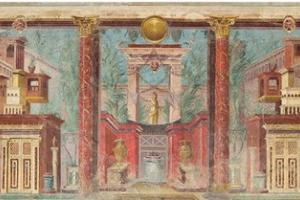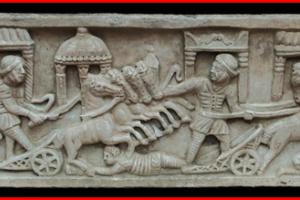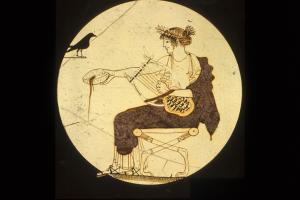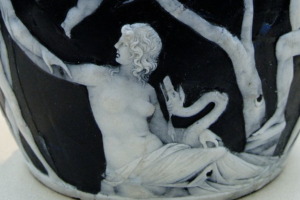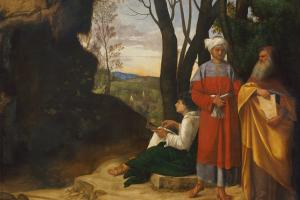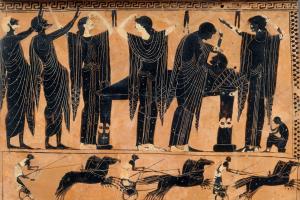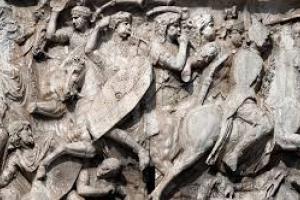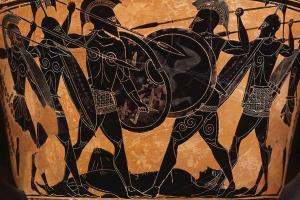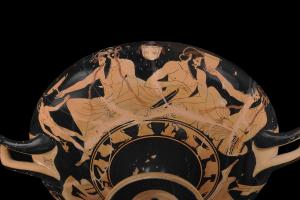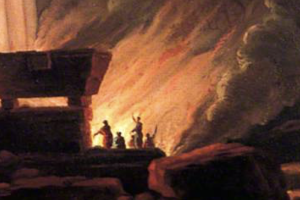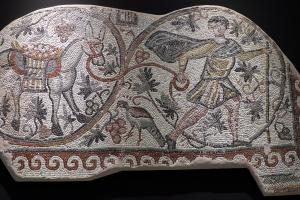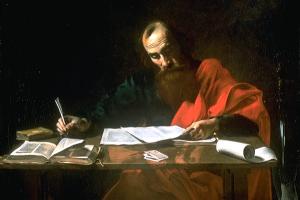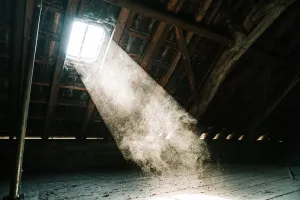Spring 2024
This course is an introduction to Roman culture and society in ten cities and ten texts. Each city will introduce us to aspects of Roman life, including politics, identity, philosophy, gender, sexuality, slavery, in the period between 500 BCE and c.350 CE and across the regions of the Roman empire. The ten texts include epic poems, historical biographies, comic and romantic tales, and attacks on political and religious enemies. The cities and the texts will help us think about the kinds of evidence we have for ancient Rome. We will pay particular attention to both systems of oppression and cultural pluralism and marginalized experiences in the Roman world. We will also think about why modern culture remains so fascinated with Rome: how often do you think about the Roman Empire?
This course provides a broad-based introduction to the archaeology of the ancient Romans from Rome’s origins in the Iron Age down to the disintegration of the Roman empire in the sixth century A.D. It aims to familiarize students with the more significant archaeological sites, monuments, artifact classes and works of art relating to the Roman world, and to introduce them to the important research questions in Roman archaeology and the methods that archaeologists employ to investigate these.
This course is intended as an introduction to the themes, characters, and images of Greek and Roman myth. We will create the universe, gods, and humans, and then focus on particular heroes as opportunities to consider the scope and interpretations of the mythology. We will consider how these ancient cultures conceived of deity, what it meant to be human, and how they dealt with the mysterious and the inexplicable. Primary evidence (literary references, physical remains such as temples and monuments, and iconography in sculpture and vase painting) will be used to identify and interpret the myths, study their origins, and analyze their importance for our understanding of ancient belief systems. Particular attention will be paid to the role of mythology in ancient religious ritual and its influence on culture. Lectures will be illustrated with images of ancient and more recent art, as one goal of the course is to provide the tools to recognize myths and characters in art.
This course examines ideas about magic in the Greek and Roman worlds 750 BCE - 400 CE, including witches, holy men, love spells, necromancy, spirits, and mystery religions, as well as the relationship between magic, religion, and philosophy.
An introduction to ancient Greek philosophy through study of Plato, Aristotle, and the most important of the schools of thought that succeeded them (Epicureans, Stoics, and Sceptics). These ancient philosophers set the agenda for many of the questions still thought fundamental to philosophic inquiry, but approached them in a spirit different from that typical of modern philosophy. They thought of philosophy as a way of life; indeed, the best way. Readings will include Plato, "Republic" (entire); Aristotle, "Physics" and "Ethics" (selections); Lucretius, "The Way Things Are" (entire); and selections from Stoic and Sceptic philosophers.
This undergraduate seminar will explore mortuary archaeology in the Aegean and Greek worlds from the prehistoric to historic periods. We will consider the mortuary environment; grave architecture; burial traditions and rituals including the treatment of the body, the depositional circumstances/parameters, and the grave gifts/offerings; and the reconstruction of attitudes and beliefs about death, mourning, identity, and memory as well as the reflection/reconstruction of life through the mortuary record.
This course is the second part of a two-semester sequence that will enable you to start reading unabridged texts in ancient Greek, the language of Homer, Sappho, Sophocles, and Plato. While the focus of the class will be on mastering this nuanced and evocative language, it will also introduce you to key themes and elements of ancient Greek literature and culture.
In this course, we will read select passages from Homer’s Iliad in Greek, as well as the entire poem in English translation. Students will (1) develop an understanding of the syntax, vocabulary, dialect, and meter of Homeric Greek, (2) discuss the Iliad as a work of literature and poetry, with attention to issues of narration and style, and (3) gain familiarity with key questions and debates within Homeric scholarship.
This course will serve as an introduction to the poetic production of the archaic period—the elegy, iambic, and melic poetry composed between ca. 650-450 BCE throughout the Greek world. All material will be read in the original ancient Greek. This will entail reading selected poems and fragments by Archilochos, Tyrtaios, Mimnermos, Solon, Theognis, Xenophanes, Alkman, Stesichoros, Sappho, Alkaios, Ibykos, Anakreon, and Simonides. We will focus on the poems simultaneously as literary texts and as historical artifacts, considering such topics as their relation to Homeric themes and diction, the effects of orality and literacy, performance context, genre, and sociological/ideological position. We will then devote approximately the last third of the course to reading selected poetry of Pindar and Bacchylides. Course requirements include two midterms, a final exam, and a short (6-10 pp.) literary paper.
Latin 1 is the first half of a two-semester language sequence preparing students to read Classical Latin. The course focuses on the dialect of Latin used by authors such as Caesar, Cicero, Vergil, and Ovid. If you want to read the language used by Caesar to address the senate, by Dido to blast Aeneas, and by Petronius to write one of the first novels, this course is your first step. This course also will also equip you to read later texts such as the works of Augustine and the Latin translations of the Hebrew and Christian Bibles—and to decipher the Latin terms and phrases used in law and bio-scientific disciplines.
Latin 1 is the first half of a two-semester language sequence preparing students to read Classical Latin. The course focuses on the dialect of Latin used by authors such as Caesar, Cicero, Vergil, and Ovid. If you want to read the language used by Caesar to address the senate, by Dido to blast Aeneas, and by Petronius to write one of the first novels, this course is your first step. This course also will also equip you to read later texts such as the works of Augustine and the Latin translations of the Hebrew and Christian Bibles—and to decipher the Latin terms and phrases used in law and bio-scientific disciplines.
Latin 2 is the second half of a two-semester language sequence preparing students to read Classical Latin. The course focuses on the dialect of Latin used by authors such as Caesar, Cicero, Vergil, and Ovid.
Extensive readings from Virgil's Aeneid in Latin, combined with grammar review to introduce you to reading Latin poetry with understanding and enjoyment. Course grades will be based on three midterm exams plus assignments and quizzes. Fulfills L&S Breadth in Arts & Literature or Historical Studies.
In this class we will read extensive selections from all four books of Vergil’s strangely compelling poem about farming. Influenced by both Hesiod and Lucretius, the poem is deeply emotional at times and often probes the connections between humans and the natural world, while also reflecting on philosophy, mythology, and contemporary history. The focus will be on reading the Latin text, but we will also read and discuss modern scholarship. There will be a short writing assignment early on, and a longer paper near the end of the semester, plus regular quizzes, a midterm, and a final exam.
A sequence of readings and lectures on Greek literature, from the late 5th century BCE to the Roman period. Authors covered will include: Herodotus, Thucydides, Lysias, Demosthenes, Menander (Dyskolos), Plato (Gorgias), Aristotle (Rhetoric), Callimachus,Theocritus, Apollonius, Plutarch (Lives of Theseus, Antony), Lucian (Death of Peregrinus), St John's Gospel, Heliodorus. Each week about 1000 lines of poetry or 30 pages of prose will be assigned (to be read in Greek).
Plato's "Laws" has long stood in the shadow of its more celebrated predecessor, the "Republic." In recent years, however, scholarly interest in the work has been surging. While taking recent scholarship into account, this seminar will focus on making sense of the "Laws" in its own terms as well as in relation to the "Republic." What did Plato seek to achieve in writing this later work? Who is he writing for? Is the work a utopia? A practical guide? A blend of the two? Is it a meditation on law and law-giving? On social control of culture more generally? If it is all of these things and more, how are its themes connected?
Lucretius’ De rerum natura is a provocative and absorbing poem. In this seminar, we will try to come to grips with some of the questions it raises, while familiarizing ourselves with basic aspects of the poem and its study.
This graduate seminar explores the Mediterranean world beyond the city from prehistory to the Roman period, with special emphasis on the first millennium BCE. Topics covered include: the rural/urban divide in ancient and modern thought; rural economies, labor regimes, and markets; property, land tenure, and borders; sanctuaries and festivals; and gender and class distinctions in the countryside. We will interrogate how new archaeological fieldwork, paleoenvironmental studies, epigraphy, ethnographic analogy, and comparative approaches drawn from other world regions can contribute to our understanding of the ancient Mediterranean countryside, with an eye to both interpretive challenges and opportunities.
